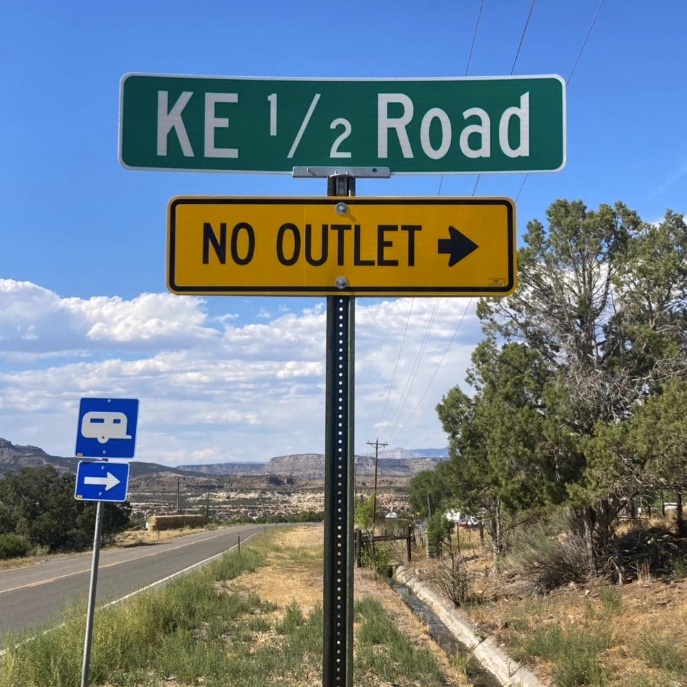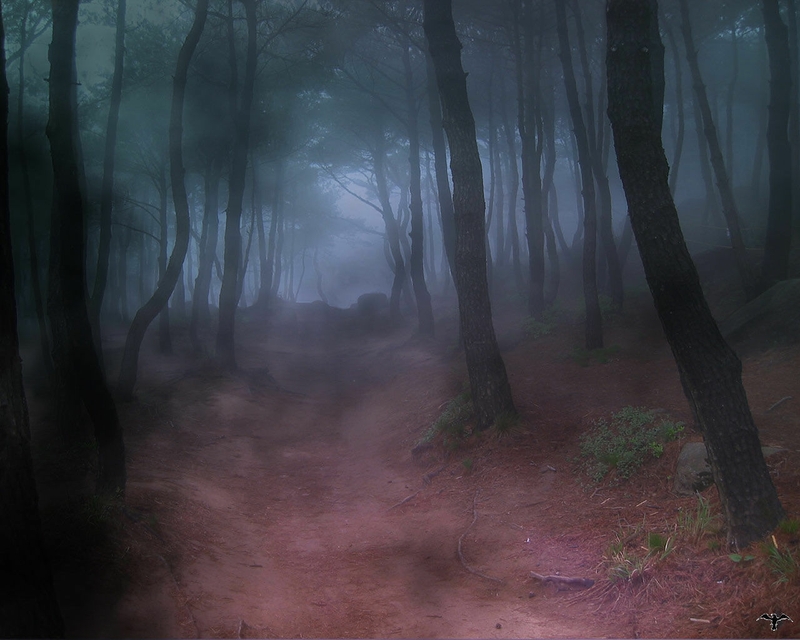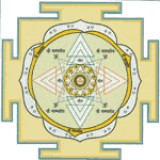
Rashi - Samchara - Bhava - Graha - Ratna - Nakshatra - Amsha - Varga
Collapsing Ketu occupies[ 4th-from-Chandra]
- Surrendering Ketu reaches maturity = age 48
- Traditional Jyotishavidya Sacred Jewels Ratna for Ketu
- BPHS Ketu Mahadasha
- BPL modern commentary Ketu Mahadasha
- [Ketu in classroom-1]
- [Ketu in classroom-2]
- [Ketu in classroom-3]
- [Ketu in classroom-4]
- [Ketu in classroom-5]
- [Ketu in classroom-6]
- [Ketu in classroom-7]
- [Ketu in classroom-8]
- [Ketu in classroom-9]
- [Ketu in classroom-10]
- [Ketu in classroom-11]
- [Ketu in classroom-12]
- [Ketu-Mesha]
- [Ketu-Urisha]
- [Ketu-Mithuna]
- [Ketu-Karkata]
- [Ketu-Singha]
- [Ketu-Kanya]
- [Ketu-Tula]
- [Ketu-Vṛścika] = [svakshetra]
- [Ketu-Dhanus]
- [Ketu-Makara-Draco]
- [Ketu-Kumbha]
- [Ketu-Meena ]
- [Surya-yuti-Ketu]
- [Chandra-yuti-Ketu]
- [Mangala-yuti-Ketu]
- [Budha-yuti-Ketu]
- [Guru-yuti-Ketu]
- [Ketu-yuti-Shukra]
- [Ketu-yuti-Shani]

AUM kem ketave namah
OM shram shreem shroum sah ketave namah
केतु ketu
Professor Ketu
शिखिन् śikhin = comet, reaching peak knowledge
आकाश ākāśa = ether, space, vacuity
कावन्ध kāvandha = appearing as a headless trunk
रुण्डक ruṇḍaka = headless body
विशिरस्क viśiraska = headless
छिद्रकारक chidra-karaka = agent of cutting-off
resides in
बन्धुस्थान bandhu-sthāna = place of belonging, staying bound
सुखदाय su-kha-dāya = easy, comfortable area
रसातल rasā-tala = earth, ground, subterranean lower realms
गृहस्थान griha-sthāna = grave, house-of-earth, burial, lower-world
South Lunar Node
cauda draconis = tail of the dragon
caesura = cut
यति yati = pause, stop, break in recitation
-----
καταβιβαζόν kata-bibazon = catabibazon
= κᾰτᾰ = down + βαίνω = go
= go down, descend = descending-node
occupies
the fourth house
genitor
domus

Matthew 8:20 [King James Version]
And Jesus saith unto him,
"The foxes have holes, and the birds of the air have nests; but the Son of man hath not where to lay his head. "

Tucker Sno-cat 443 (1955 model) on the 1957-1958 Antarctica mission.
EXAMPLES
[Ketu-Mesha] occupies [Bhava-4]
[for Makara - Draco indriya-lagna]
-
check Kuja + Kuja-drishti to source Ketu's ambivalently forward-pushing, apatheticly pioneering, disintegrating inventiveness
[dispersed homeland bloodline vitality] [physically scattered cultural foundations] [energetic absentee mother-caretaker] [neutral witness to pioneering actions of the local settlements]
[Rahu-Tula-10 = elite bargaining-brokering executive career]
- [may be passively fixated upon ambitiously diplomatic, instrumentally partnering Rahu-Tula-10 leaders, commanders, iconic-figures, bosses, hierarchs]
[vigorous journeys away from the home-folk] [primal disdain for the educational infrastrucuture] [disinterest in the customary movements of liturgical worship]
-
Liberia-Pres 1938- Ellen Johnson Sirleaf [secretive-eruptive Bharani-4] = [navamsha Ketu-Vṛścika-uchcha]
-
Fijación Oral 1977- singer Shakira Mebarak [music-language Aśvini-2] + [Aśvini-Ketu-yuti-Guru-Kṛttikā]
***
-
POTUS-17 Reconstruction 1808-1875 Andrew Johnson [strategic-complaining Bharani-2]
-
Opus Dei 1902-1975 St. Josemaria Escriva [calculating-ministering Bharani-2] + [Ghataka KSY]
-
CNN buffalo lands 1938- Ted Turner [secretive-eruptive Bharani-4] = [navamsha Ketu-Vṛścika-uchcha]
-
Clairsentient 1939-1994 social justice Paul Solomon [rhythmic-protective Aśvini-4] + [Aśvini-Ketu-yuti-Shani-Aśvini]
[Ketu-Urisha] occupies [Bhava-4]
[dispersed homeland heritage] [historically scattered cultural foundations] [apathetic toward real-estate pricing]
[knowledgeable absentee mother-caretaker] [neutral witness to financial needs of the local settlements] [compensating agreements despite local household disengagement ]
- [may be passively fixated upon ambitiously secretive-emerging Rahu-Vṛścika-10 leaders, commanders, iconic-figures, bosses, hierarchs]
[valuable journeys away from the home-folk] [fluctuating assessments of educational infrastrucuture] [disinterest in the customary sounds of liturgical worship]
-
Ford Motor Co. 1863-1947 assembly line Henry Ford [inventive-pioneering Rohiṇī-1]
-
SoAfrica-Pres 1918-2013 Long Walk to Freedom Nelson Mandela [analytical-helping Mriga-2]
-
Hour of Decision 1918-2018 Rev. Billy Graham [rhythmic-customary Rohiṇī-4]
[Ketu-Mithuna] in [Bhava-4]
[for Meena - Antya indriya-lagna]
-
check Budha + Budha-drishti to source Ketu's spacey sentences, vague instructions, disinterested discourse
[communicatively dispersed homeland roots] [commercially scattered cultural foundations] [chatty absentee mother-caretaker]
[neutral witness to management of the local settlements] [business journeys away from the home-folk] [wandering conversations anchor the basic education]
[disinterest in the customary phrasing of liturgical worship]
[may be passively fixated upon ambitiously opportunistic inspirational-dogmatic Rahu-Dhanus-10 leaders, commanders, iconic-figures, bosses, hierarchs]
-
POTUS-01 American Revolution 1732-1799 George Washington masked-undisclosing Mriga-4] = [navamsha Ketu-Vṛścika-uchcha]
-
49th Nizari Ismaili Imam 1936-2025 Agha Khan-4 Karim al-Husseini [diplomatic-promising Mriga-3]
[Ketu-Karkata] in [Bhava-4]
[for Mesha indriya-lagna]
-
check Chandra + Chandra-drishti to source Ketu's ephemerally calming, empty familiarity, vaguely ancestral rhythms
[sentimentally dispersed homeland roots] [soothingly scattered cultural foundations] [neutral witness to needs of local settlements]
[rhythmic long journeys away from the home-folk] [wandering pathways anchor the basic education] [disinterest in the customary agricultural lunar-cycle worship]
[patriotic absentee mother-caretaker]
[may be passively fixated upon ambitious regulatory Rahu-Makara-Draco-10 leaders, commanders, iconic-figures, bosses, hierarchs]
-
POTUS-07 Indian Removal 1767-1845 Andrew Jackson [optimistic-ideological Aśleṣā-1]
-
POTUS-06 American System 1767-1868 John Quincy Adams [compromising-haggling Pushya-3] + [Pushya-Ketu-yuti-Kuja-Aśleṣā] + [Pushya-Ketu-yuti-Budha-Aśleṣā]
-
Russ-Soviet 1878-1953 Man-of-Steel Josef Stalin [secretive-discovering Pushya-4] = [navamsha Ketu-Vṛścika-uchcha]
-
Rus-Pres 1952- First Person Vladimir Putin [systematic-profitable Aśleṣa-3]
***
-
Russ-Empress 1729-1796 Noble Maidens Catherine the Great [charitable-visionary Aśleṣa-4]
[Ketu-Singha] occupies [Bhava-4]
[for Urisha indriya-lagna]
-
check Surya + Surya-drishti to source Ketu's charmingly ambivalent, passively entitled, ceremonial detachment
[brightly showy abandonment of homeland roots] [theatrically scattered secure foundations] [neutral witness to flamboyant local politics]
[dramatic long journeys away from the home-folk] [follows wandering ways for splendidly entitled education] [detached creative performance of the customary display of solar-cycle worship]
- [may be passively fixated upon ambitiously opportunistic friendly, profitable, interlinked Rahu-Kumbha-10 leaders, commanders, iconic-figures, bosses, hierarchs]
[self-referential absentee mother-caretaker]
-
Pucci Prints 1914-1992 fashion Emilio Pucci [optimistic-ideological Uttaraphalgunī-1]
-
Truth Be Told 1933-2021 interviewer Larry King [champion-innovator Magha-1]
-
Moral Majority 1933-2007 Rev. Jerry Falwell [financial-oratorical Magha-2] + [Apah-Shukra-yuti-Ketu-Magha]
***
-
Christian Science 1821-1910 Mary Baker Eddy [displaying-demonstrating Pūrvaphalgunī-1] = [vargottamsha]
[Ketu-Kanya] occupies [Bhava-4]
[for Mithuna indriya-lagna]
-
check Budha + Budha-drishti to source Ketu's dispassionate analysis, witnessing logic, distanced criticism
[laboring wanderers have dispersed homeland roots] [unfairly scattered secure foundations] [neutral witness to local exploitation]
- [may be passively fixated upon ambitiously imaginative, expediently symbolic , astonishingly inner-wiseRahu-Meena -10 leaders, commanders, iconic-figures, bosses, hierarchs]
[overworked absentee mother-caretaker]
-
Sophie's Choice 1949- drama Meryl Streep [calculating-logistical Chitra-2] = [vargottamsha] ??
***
-
China-Dictator 1893-1976 Mao Zedong [customary-ancestral Hasta-4]
-
Be Here Now 1931-2019 Baba Ram Dass [protective-patriotic Hasta-4]
-
Ring of Fire 1932-2003 rockabilly Johnny Cash [proletarian-collectivist Uttaraphalgunī-3]
[Ketu-Tula] occupies [Bhava-4]
[for Karkata indriya-lagna]
-
check Shukra + Shukra-drishti to source Ketu's pleasantly apathetic, ambivalently agreeable, unsustainable promises
[diplomaticly dispersed homeland roots] [smoothly scattered secure foundations] [neutral witness to local arrangements]
- [may be passively fixated upon ambitiously competitive, pushy, challenging Rahu-Mesha -10 leaders, commanders, iconic-figures, bosses, hierarchs who surround ones elite innovator executive career]
[pleasantly gracious absentee mother-caretaker]
-
POTUS-03 Declaration of Independence 1743-1826 Thomas Jefferson [bargaining-middleman Viśākha-3]
-
POTUS-31 Challenge to Liberty 1874-1964 Herbert Hoover [ideological-optimistic Arcturus-1] parents deceased early childhood
-
UK-PM Finest Hour 1874-1965 Winston Churchill [negotiating-diplomatic Chitra-3] = [vargottamsha] + [Chitra-Ketu-yuti-Budha-Viśākha] + [Chitra-Ketu-yuti-Guru-Chitra] [4, schooling, parents, cultural foundation, ancient rhythms]
-
UK-King 1948- environmentalist Charles-3 [regulatory-governance Arcturus-2] + [Svati-Ketu-yuti-Surya-Viśākha] + [Svati-Ketu-yuti-Budha-Svati]
= [uchcha] - [for Simha indriya-lagna]
-
check Kuja + Kuja-drishti to source Ketu's disinterestedly eruptive, fragmenting sudden discovery, disintegrating evolutionary force
- [may be passively fixated upon ambitiously sensual-entreasuring Rahu-Urisha-10 leaders, commanders, iconic-figures, bosses, hierarchs]
[neutral witness to local emergencies] [mysterious absentee mother-caretaker]
-
UK-Princess 2021- Lilibet Diana Sussex [evolving-eruptive Anuradha-4] = [vargottamsha] = [navamsha Ketu-Vṛścika-uchcha]
***
-
Super Brain 1946- media-commerce Deepak Chopra [regulatory-institutional Jyeṣṭha-2] + [Jyeṣṭha-Ketu-yuti-Shukra-Anuradha]
-
Calif-Gov 1947- Terminator Arnold Schwarzenegger [political-displaying Anuradha-1]
[Ketu-Dhanus] in [Bhava-4]
[for Kanya indriya-lagna]
-
check Guru for the source of Ketu's ephemeral convictions, fragmented philosophy, optimistic belief
[disintegrates the roots of customary folk beliefs] [unconcerned with maintaining outdated parental ideologies] [unburdened by fixed principled philosophy]
[liberated from the bonds of fearful ancestral worldview] [surrenders unnecessary moral dogma] [removes the anchoring security of ancient faith-preachings]
[ephemeral guardian of free-moving ethno-religious understanding]
- [may be passively fixated upon ambitiously messaging, expediently commercial Rahu-Mithuna-10 leaders, commanders, iconic-figures, bosses, hierarchs]
[cheerfully theoretical mother may be tolerant understanding itinerant caretaker, inconsistently humanistic schoolteacher, meditative priestly householder]
-
Mughal Emperor 1592-1666 Shah Jahan [calculating-logical Pūrvāṣāḍhā-2] + [Mūla-Shukra-yuti-Ketu-Apah]
-
Methodism 1703-1791 preacher John Wesley [contractual-brokering Pūrvāṣāḍhā-3] + [Apah-Ketu-yuti-Chandra-Mula]
-
UK Earl of Wessex 1964- Edward Mountbatten-Windsor [celebrity-entitled Pūrvāṣāḍhā-1]
[Ketu-Makara-Draco] occupies [Bhava-4]
= [for Tulā indriya-lagna]
-
check Shani + Shani-drishti to source Ketu's orderly wandering, socially approved emptiness, legitimate surrender
[socially respectable yet eccentric or absentee mother-figure]
- [may be passively fixated upon ambitiously protective, expediently defensive Rahu-Karkata-10 leaders, commanders, iconic-figures, bosses, hierarchs]
[rarely interested in conventional household roles]
[Rahu-10 seeks elite power; Ketu-4 unconcerned with parochial order]
-
Harmonices Mundi 1571-1630 Johannes Kepler [financial-heritage Śrāvaṇa-2] + [Śrāvaṇa-Ketu-yuti-Shukra-Vaisva]
***
-
Oops 1981- music-merchandise Britney Spears [normalizing-regulating Uttarāṣāḍha-2] = [vargottamsha] + [Vaishva-Ketu-yuti-Chandra-Shravana] + [Vaisva-Ketu-yuti-Shukra-Vaisva] [4, parents, custodial protection, household, cultural basis] ??
[Ketu-Kumbha] occupies [Bhava-4]
[energizing-identifying lagnesha co-ruler for Vṛścika indriya-lagna]
-
check Shani + Shani-drishti to source Ketu's orderly wandering, socially approved emptiness, legitimate surrender
[energizing-identifying lagnesha co-ruler for Vṛścika indriya-lagna]
[disregards obsolete community parenting conventions] [peculiar use of marketplace infrastructure] [incoherently friendly torso hugging]
[eccentric crowd-pleasing populist protectivism] [disinterested in scientific education] [inconsistent yet profitable local socializing]
[free-roaming futuristic household] [abandons outdated interlinked cultural customs] [ambivalent toward mass-participation nationalism]
[scattered disoriented socialite mother] [typically disconnected from proletarian caretakers] [economic shifts may uproot home-and-school residence]
[may be passively fixated upon ambitiously speculative-political Rahu in Singha-10 leaders, commanders, iconic-figures, bosses, hierarchs]
-
England-Queen 1533-1603 Armada Elizabeth-1-Tudor [transformative-disguising Dhaniṣṭha-4] = [navamsha Ketu-Vṛścika-uchcha]
-
UK-Princess 1961-1997 Diana Spencer] [secretive-revealing Dhaniṣṭha-4] = [navamsha Ketu-Vṛścika-uchcha] + [Dhaniṣṭha- Chandra-yuti-Ketu-Dhaniṣṭha]
***
-
POTUS-41 All the Best 1924-2018 George H.W. Bush [transformative-disguising Dhaniṣṭha-4] = [navamsha Ketu-Vṛścika-uchcha] = [Dhaniṣṭha-Ketu-yuti-Kuja-Dhaniṣṭha]
-
POTUS-46 Pandemic 1942- Joe Biden [secretive-revealing Dhaniṣṭha-4] = [navamsha Ketu-Vṛścika-uchcha]
[Ketu-Meena ] occupies [Bhava-4]
[for Dhanus - Haya indriya-lagna]
-
check Guru + Guru-drishti to source Ketu's broadly dispersive, cheerfully ghostlike, expansively dreamy beliefs
[dispersed homeland interior guidance] [scattered visionary cultural foundations] [privately prayerful absentee mother-caretaker]
[neutral witness to fragmented imagination of the local settlements] [Rahu-Kanya-10 = elite military-accounting executive career]
- [may be passively fixated upon ambitiously exploited, ministering-assisting Rahu in Partha-10 leaders, commanders, iconic-figures, bosses, hierarchs]
[distant foreign journeys may disorient the home-folk] [dreamlike disconnection from the educational infrastructure] [disinterest in the customary meditations of liturgical worship]

 KETU
occupies BANDHU-STHANA
KETU
occupies BANDHU-STHANA
Similar effects = Ketu in 4th-from-Chandra
Similar to the effect of Ketu in 4th from Chandra
also similar to Ketu yuti lord of bhava-4
-
Attachment institutional leadership (10)
-
Detachment parochial home life (4)
perpetual underlying psychic grief for some ineffable lost connection to the homeland; lost roots
The Rahu-10 + Ketu-4 nativity may be a recognized, risk-rewarded public leader. However, Ketu-4 = rarely at home. Typically the mother-or-parents-or-caretakers = absent in some way [mentally, physically] .
As always with upagraha, the ruling graha - along with any graha-yuti-upagraha = utmost influence, and essential to incorporate into the reasoning for predicting upagraha outcomes.
Ketu diffuses, scatters, nebulizes matters of His residential bhava.
Professor Ketu teaches on the topics of liberation from fixed form, freedom from obsolete conventional limitations, dispersal of burdens, and spiritual wandering.
Effects of Ketu include wandering in cloud-form (nebula) and unsettled, liberated behavior in the bhava.
Ketu grants the passive benefits of freedom-from, rather than the active benefits of freedom-to
[Ketu in Bhava-4] = anaphylaxis (incomplete protection).
intermittent ambivalence toward matters of 4, such as parenting, educating, transport, farming, and protective roles.
- May have pronounced eccentric characteristics, highlighting apathy under guise of defensive or culturally sustaining roles
- May seem haughty if Surya or Chandra = empowered.
- much of the outcome depends upon graha-yuti-Ketu ++ Ketu's ruler
Learning path of witness-observer to patterns of unrootedness
- Homelessness
- Unsettled, disoriented, free-wandering, scattered life-foundations.
- Often dissociated from the parents, especially mother
- Tends to walk away from fixed shelter, anchors, home, place
- Abandons conventional property ownership-stewardship .
- Disregard for the authority structures that maintain colonialism, nationalism, protectionism, ethnic privilege.
- Liberation via understanding that security is impermanent by design, including one's own cultural roots, schooling, and ethnic belonging.
Rahu-10 emphasizes social leadership, and Ketu-4 releases local attachments. Many high-recognition public figures have Ketu-4 because their Rahu-10 authoritative social obligations keep these natives away from home.
Cutting Ketu bhava-4= childhood home and house, local environment and folkways, ancient customs, and established cultural norms, parents and caretakers, mother Earth = roots
-
Ketu-4 could suggest absentee parents, and disinterest in schooling.
-
Ketu-4 could show lack of safety limits within the household, that might make it easier for predators to enter the domain.
-
Collapsing Ketu -4 indicates that shows that the inner witness is both non-reactively aware of home activities and largely unmotivated to alter them regardless of the consequences.
-
May be unconcerned [Ketu] about standard of living, housing [4] or the schooling of children [4]
crumbling former crofts of home-worker weavers
remnants of Scotland's obsolete manual textile industry
100 years since their abandonment
Due to Rahu-10, the Ketu-4 nativity is often found in highly visible placements in the social hierarchies. One craves recognition, iconic status, or governance power and Typically, the life trajectory has prepared the native to take a high position.
Rahu craves elite privilege (10) while Ketu shows the great base of the settled folk (4).
Commonplace feature of Ketu-4 = the Learner may be vaguely schooled or perhaps educated in schools outside of the homeland (4).
Roots in the home culture are weak while ambitious connection to the larger hierarchical structures of world power, international and corporate pyramids which span regional boundaries, are proportionally much stronger.
There can be several scenarios.
One version = Ketu-4 has been educated abroad.
Thus the Learner obtains the lingua-franca of the times, and the Learner comes to possess the habits of elite behavior within the privileged classes.
Conversely, the Learner may not be familiar with the local folkways, ancient customs, and established cultural norms. Most critically that portion of religion which is folk-custom and superstition (the major part) may unfamiliar to Ketu-4.
Another scenario = the Learner is educated indeed in the local schools, but the desired seat of power [Rahu] is located in an adjacent sphere. Thus the Learner is familiar with the folkways, ancient customs, and established cultural norms of one's own folk but lacks a rooted understanding of the full group of peoples over whom the Learner gains governance control.
Along with Rahu's passion for the privilege of high leadership positions, Ketu may produce disdain for the local folk and their basic needs.
Or, there can be a never-look-back moment . After the abandonment, matters of bandhusthana become irrelevant. From this event - which can occur in a bhukti of Ketu or Rahu, or during the bhukti of a graha located in a nakshatra of Ketu or Rahu - the Learner becomes magnetized to the peak of the hierarchy [Rahu-10]
EXAMPLE
Russ-Soviet 1878-1953 Man-of-Steel Josef Stalin [Ketu-4] = [Ketu-Karkata]
-
While still under the influence of his devout mother and still funded by his bio-dad the priest, JS received a solid humanistic education, age 12 to 21. From age 16, JS attended Russian Orthodox Christian seminary.
-
His pious mother hoped that JS would become a bishop. However, JS future was overtaken by the intense ambition of [nīcha-Guru-yuti-Rahu] [Makara-10]
parivartamsha Shani-12 karmesha] Despite notable intellectual promise, the man-of-steel abandoned his clerical education age 21, by getting expelled for skipping [Ketu] final exams. He then moved into full-time gangsterism.
A wobbly anchor in old age - ending life in Ketu Mahadasha
Another version = schooling (4) foundational education = local and patriotic but very exclusive and elite, so that Ketu-4 grows up almost entirely out of contact with the Great Base of the Pyramid which consists of the lower peoples and their emotionally charged but parochial worldview.
EXAMPLE
UK-King 1948- environmentalist Charles-3 [regulatory-governance Arcturus-2] + [Svati-Ketu-yuti-Surya-Viśākha] + [Svati-Ketu-yuti-Budha-Svati]
-
was said to have been homesick and unhappy at school [4]. Following aristocratic custom [4] of the era, he was sent from home at the tender age of eight to a series of different boarding schools. Age 17, Charles studied for two academic terms in Australia.
-
Charles returned home only rarely. Following a Baccalaureate from Trinity College, Cambridge, Chandra-Rahu-Mesha-10 = elite military officer training.
EXAMPLE
UK-PM Finest Hour 1874-1965 Winston Churchill [negotiating-diplomatic Chitra-3] = [vargottamsha] + [Chitra-Ketu-yuti-Budha-Viśākha] + [Chitra-Ketu-yuti-Guru-Chitra] [4, schooling, parents, cultural foundation, ancient rhythms]
-
According to his writings, young Churchill as a child barely saw his father. Before school-age, he had a nanny. Then WJSC was sent to boarding school. Neither of his parents visited him at school.
-
Nevertheless, the name "Spencer-Churchill" was widely recognized in aristocratic British society, granting entitlements to property (4) and admission to elite schools (4).
Ketu's behavior is always directed by Ketu's ruler. Here = case of Ketu-4 ruled by a powerful [uchcha] Mangala-1 casting drishti into Ketu-4 while Mangala is further strengthened via Guru and more.
EXAMPLE
Opus Dei 1902-1975 St. Josemaria Escriva de Balaguer [KSY] Ketu-4 ruled by [uchcha-Budha-yuti-Kuja-yuti-Guru-1] with Guru-1 parivartamsha to lagnesha Shani-12.
-
Father Escriva founded several colleges and a university.
-
Despite his propensity to discuss extreme experiences of personality-dissolution while in a state of prayer (which is not much different from clinically defined insanity) Fr. Escriva retained and indeed developed his priestly legitimation within the RC Church due to the enormous support from Ketu's institution-loving Makara - Draco planetary rulers.
-
Not to mention that Ketu receives the powerful 4th drishti of Mesha's ruler the [uchcha] Mangala-1, which pushes this Ketu into the fundamental-schooling activities in a very dynamic way.
-
Yet, the schools all retain Ketu's misty qualities of uncertain boundaries between conventional education and personal spiritual experience.
Untenable properties
Rahu-10 desires to rule over a people whose folkways, ancient customs, and established cultural norms and expectations are only vaguely understood [Ketu] and toward whom Rahu-10 feels a certain disregard for their commonness. Not contempt, but a certain incoherent vagueness of comprehension [Ketu].
EXAMPLE
POTUS-31 Challenge to Liberty 1874-1964 Herbert Hoover [ideological-optimistic Arcturus-1]
-
During the first, worst years of the Great Depression, Hoover suffered from chronic alienation from the commonfolk [4].
-
HH promoted the champion's narrative of self-reliance (Rahu-10-Mesha) rather than building social safety nets for the vulnerable unemployed base-layer of society [4].
-
Presuming that "of course" the American electorate would re-affirm his innovative leadership, Hoover was shocked and angry when he lost re-election.
-
Unfortunately, HH was perceived not as a brilliant pioneer but rather as a heartless, detached, elite creep, totally lacking empathy for the "Hooverville" homeless encampments (Ketu-4) that were spreading in squalor across the USA.
Ketu-4's vagueness about the life lived by the vast majority in the great base of the social pyramid partners with power-hungry Rahu-10's notorious ability to rule fiercely, absent empathy for the common people.
Ketu-4 yearns for: emotional stability, mother's unconditional love, and deep roots in the culture of a settled people- but cannot sustain it
-
Ketu-4 may live abroad or moves nebulously from home to home within several cultural districts of the homeland
-
Bhukti of Ketuva may feature extensive wandering, and perhaps even abandonment of the homeland if bhava-11 (8th-from-4th) is strong
-
as a life trait, Ketu-4may undertake long journeys across the land, such as long automobile trips during which normal routines (4) are suspended.
Helpful in military careers because Ketu-4 is comfortable with a scattered home-base and long absence from home-roots.
EXAMPLE
UK-King 1948- environmentalist Charles-3 [regulatory-governance Arcturus-2] + [Svati-Ketu-yuti-Surya-Viśākha] + [Svati-Ketu-yuti-Budha-Svati]
-
parents absent during childhood = UK Navy
(bhava-11 = 8th from 4th = new patriation, new homeland identity, new passport)
(give adequately stable home environment if Ketu's ruler is strong, but the Learner feels frequently insecure and dissatisfied with these)
Relationships
Institutional vs. Parochial
Ketu in 4 = one is often psychically compelled by a hunger for validation via high-visibility professional roles.
-
The home life including parenting and property ownership-stewardship becomes less engaging
-
Often the parents, especially the mother, are emotionally unavailable
TKetu-4 may appear disinterested and dissatisfied toward even the most socially grand and spectacular home properties or educational diploma. Unless the bandesha-4 is strong, even prestige vehicles such as luxury automobiles may have little attraction.
If in a position of social power, Ketu-4 = likely to have professional livery or simply prefer to walkr.
The homelife may be somewhat scattered , often featuring an unavailable or effervescent mother
one is disinterested in conventional school,
the parents are often in some state of ungroundedness or insufficiency (often financial) or parents frequently absent
there may be substitute parents who are servants or salaried workers
the household structure may be unsteady or prone to collapse
and the Learner may be diagnosed with some variety of wandering attention pattern which signals distraction in the classroom
on the plus side, extra-sensitive psychically to the presence of plant-deva and spiritual guidance in the garden - although the Learner may not follow through on their instructions, the natural perspective is non-discriminating and the Learner may be aware of their presence at least.
Unless Chandra is empowered, , the parents might be emotionally unavailable.
Psychological expectation of abandonment and rejection by parents, homeland, schools and schoolteachers, caretakers, the place of birth. The Learner may abandon homes and vehicles and leaves school.
The Learner may leave the region of birth and move to a new region, or even reject one's citizenship and adopt a foreign country as the new homeland, only to become rootless and dissatisfied in the new place. (Ketu = abandonment, chidrakaraka)
-
Ketu = moral * walled * enemy of root-dwelling, place-clinging Chandra.
Tends to surrender or give away one's owned-stewarded property , deeds of title, securities, vehicles, diploma and certificates of schooling.
The parents , especially The mother and the fourth spouse (if any) = Ketu-ish, peculiar, detached, eccentric, odd.
-
Feels that security, ownership, and protection = mirage.
Rather apathetic toward conventional schooling in general. Disconnected from property ownership-stewardship and root-culture traditions.
Abandonment or separation from the parents, loss of home, stability et-cetera for spiritual benefit of moksha
Concluding Ketu -4 may suggest a withdrawn or addicted personality to mother
The primary indicator of Mother = matrikaraka Chandra. Ketu-4 must be considered only a secondary indicator of the mother's instability, and more often a pattern of rootlessness or frequent house moves or needing often to stay in temporary dwellings for reasons of work duty.
Mother is emotionally unavailable or unreliable. Child must learn to mother him/herself. Extreme weakness of adult parent-type role models.
During Vimshottari periods of Ketu, feelings of homelessness and rootlessness. Child must learn to create their own safe nest.
Vimshottari period s of Ketu
-
During Ketu bhukti of any mahadasha and acutely during the Ketu-Ketu svabhukti, one born with Ketu in Bandhu Bhava may have a hopeless feeling that one's mother ... (or both parents), childhood home, schooling, owned-stewarded property , and folkways 'roots' cultural habits(4) are slipping away for reasons that seem out of one's control .
This feeling of being a drifting spectator toward the conditions of one's own life may be even more profound when either Chandra or the indriya-lagna occupy a Nakshatra of Ketuva = Aśvini, Magha - Regulus, or Mula - Nirṛti.
Ketu-4 weakens the physical heart, therefore, the native must attend more carefully than normal to one's cardiac health.
-
Without proper attention, heart can become a psychic weak spot which lacks protective boundaries.
-
With sensible lifestyle, regular check-ups and management of diet, the problems can be averted.
disregards boundaries
displacement
empty houses
collapsed cultures
dispossessed domains
fragmented foundations
foggy pathways
nebulized neighborhoods
lost rhythms
pulverized ancient routines
untenable real-estate properties
uncolonized lands
sinkholes
ashes to ashes, dust to dust
tendency to walk-away from domestic roles
lost-and-forgotten civilizations I
Interruptions, scattering, breakage in matters of transport
EXAMPLE
Ford Motor Co. 1863-1947 assembly line Henry Ford [inventive-pioneering Rohiṇī-1]
[Ketu Mahadasha] = [age 76.6 until age 83.6] = [1940-1947] + [Ketu-Urisha] = [Ketu in classroom-4]
-
During Budha Mahadasha, The USA market for affordable automobiles was saturated and profits dipped. Encouraged by USA-Commerce Secretary Herbert Hoover , HF spent millions developing assembly-line factories in Germany. Ford cars were selling briskly in Europe. Henry Ford became friendly with Adolf Hitler.
-
At onset of Ketu Mahadasha, Pearl Harbor caused USA to declare war against Axis powers. The Nazi regime instantly nationalized all Fordwerke assets -- including patented machines.
-
HF lost his huge capital investment almost overnight [Ketu-Urisha-4 capitalization for transport, ruled by sudden shocks nīcha-Shukra-8]
- However, USA war-making quickly went into overdrive making motorized vehicles for the American military. As soon as Ketu-Rahu bhukti arrived, Ford Motor Co. was luxuriating in war contracts [Ketu ruler = nicha-Shukra-8 sudden contracts].
Rahu-10's public profile is high-and-recognizable while due to Ketu-4, the home roots often shift, moving from place-to-place, not grounded into the parents' culture
The folkways, ancient customs, established cultural norms, and beliefs of the Great Base may be of little interest to Ketu-4. Instead, rahu-10 supplies a passion for high-visibility leadership roles matched to Rahu's rashi.
Uncharacteristically for this normally gentle and land-rooted group, Ketu detaches the desires and disengages the clinging attachments of
- householders, denizens, citizens, parishioners
- parents, schoolteachers, caretakers, dwellers in the settlement
- police, environmentalists, defenders of the land
- priests of the ancient liturgies, ritualists, pujari, blessers of burials
- patriots, localists, guardians of the folkways
Scattered Ketu's weak psychic boundaries create difficulty to achieve, obtain, maintain, or retain connection to:
-
cultural roots are scattered
-
careless with matters of the home
-
detached from the conventional and expected routines of home life such as regular meals, transportation of children to school, schedule of home-based occupations, regular home-maintenance such as cooking and laundry.
-
Parents are often dismissed, especially the mother. Little concern for the basic, habitual needs, such as nourishment, local protection, schooling, and shelter.
-
detached from the Childhood Home, school, parents, Homeland, folkways, patriotism
-
apathetic toward Local folkways, ancient customs, and established cultural norms, basics, roots, belongingness, nurturing, protections
-
unconcerned with Security, defense, police, the polis (walled city), place-Fixed Wealth, owned-stewarded properties, buildings, shelters
-
scattered approach toward of Licensing, diplomas, Examinations, completion of studies; also ambivalent toward the career of the mate (10th from 7th)
-
unfocused on matters of the end of things such as burial, things underground, foundations, roots, basements, the Earth
busts-up, scatters the childhood home; disperses parents and patriotism, especially the mother; eliminates restrictions on passport, homeland roots, and rhythmic folkways, ancient customs, and established cultural norms of a people.
Dissolution of Schooling = Disused Diploma
EXAMPLE
UK-PM Path to Power 1925-2013 Margaret Thatcher [Samka KSY] [imaginative-guided Vaishva-4]
-
MT earned a BS-Chemistry diploma from Somerville College, Oxford. However, she became a tax attorney and then a politician, leaving the chemistry skills unused.
Even with much preparation for a teaching career, may walk-away from conventional classroom teaching.
Ketu- 4 = may indicate apathetic or detached from home, mother, property,
wanders away from the routine folkways, ancient customs, and established cultural norms of the mother's family, the nation-state,
disinterested in the defense of boundaries and frontiers,
eschews real estate, vehicles, education,
apathetic toward social security, socialization, emotional security, protection, folkways, ancient customs, and established cultural norms and manners,
may disregard the conventional practice of licensing, passing examinations, earning school diploma
empties the kitchens, cuts the roots,
dries or scatters gardens, houses, buildings, loss of children,
ambivalent loss of creativity, old age, beginnings and endings
Neglects home, roots, properties, socialization, licensing, basic education, the mother and her people
chidrakaraka ]
-
May be disinterested in the comforts of home.
-
Ambivalence toward the childhood home and the fixed homeland, owned-stewarded properties, the parents, rhythmic folkways, ancient customs, and established cultural norms, rhythmic lifestyle habits of a people, basic schooling. Ambivalence toward local folkways, ancient customs, and established cultural norms.
-
Channels the vibration of the curators, custodians, protectors, and guardians without egoic-mind membrane interference.
-
Stability of the childhood home is unreliable and the childhood security is often destabilized by mother's scattered energy.
chalakaraka Rahu =
-
Fascination with the halls of power. Ambition to obtain "by whatever means necessary" the privileges accorded to heads of state, organizational leaders, top-level governance authorities, social regulators, officers of law and order
Gifted in service of providing security to others, by one who does not own a home, or has no fixed residence; or one in service to education, by one who holds no diploma; or one who guards and protects the Earth, who does not own the Earth
-
less benevolent for the spouse's career, unless other strong graha might occupy bhava-4 yuti Ketu
[Ketu in classroom-4] may signal an absentee or exhausted mother, or emotionally disconnected even while present at home.
Public career dominates home routines
Rarely at home, usually out doing Rahu's public high visibility roles. When at home, rather apathetic or dispersed in attention.
-
POTUS-31 Challenge to Liberty 1874-1964 Herbert Hoover . Orphaned when parents prematurely deceased. Passed from relative to relative. Ascended to POTUS-31, but rejected for a second term due to his obvious disdain for the little people, wandering homeless and empty bellies [Ketu-4]
-
UK-King 1948- environmentalist Charles-3
-
UK-PM Finest Hour 1874-1965 Winston Churchill [negotiating-diplomatic Chitra-3] = [vargottamsha] + [Chitra-Ketu-yuti-Budha-Viśākha] + [Chitra-Ketu-yuti-Guru-Chitra] [4, schooling, parents, cultural foundation, ancient rhythms]
The highest manifestation of Ketu consciousness = impersonal but wise custodial stewardship of the land.
Building disintegration or collapse.
- Where once = coherent structure, Ketu-ized into a plume of dust.
- Ketu makes particles.
A general vagueness, unsteady foundations, unsustainable claims, uncertain belongingness, dissolved roots,
nebulizing cloudiness dustiness fogginess in matters of lands, properties, vehicles, boundaries, naation and nationality.
Collapsing household [materially or psychologically] incoherent parents, dissolving buildings, shoddy construction, pulverized walls
Landslide
Matched by ambitious intensity to obtain social-authority positions (10 Rahu)
-
POTUS-10 Annex Texas 1790-1862 John Tyler staked an aggressive but unsustainable claim (Ketu unsustainable) on his plantation way-of-life (4). JT had inherited slaves, lands, and capital from his father. Ketu's ruler Mangala-Karkata
= [nīcha] occupies Tyler's bhava-7 = 4th-from-4th properties (including human slaves reckoned as owned-stewarded property ). Suffering no moral compunction over the brutality of the hideously cruel economic system (Kuja activates 11) that produced his revenues, JT = unabashed proponent of slavery under the legalistic guise of States Rights (Rahu-10 expedient agreements for lawful social order).
Ketu in bhava-4 may indicate a despair arising from a deep and unsatisfied longing to connect with the "roots " of one's mother's lineage.
The Learner may feel fundamentally insecure throughout life.
Professor Ketu-4 may suggest acute disappointment toward one or both of the parents. Ketu the Nebulizer may suggest a wanderingly dysfunctional parent, or perhaps a parent with some type of alienating chronic condition such as a mental or physical illness, addiction, et-cetera. Negligent or absentee parenting.
The Learner may desperately try to possess material goods in the effort to feel secure. However, the gnawing deeper dissatisfaction will always be present because Shri Ketu is sending a message!
/ Witness viewpoint / especially effective regarding expectations of the parents , who are rather bound to be failures in the business of providing core security to one who has this Ketu placement in bhava-4.
In addition to signifying peculiar [Ketu] parents, the marriage may also feel disconnected when Chandra-yuti-Rahu-10
EXAMPLE
POTUS-06 American System 1767-1868 John Quincy Adams [Budha-yuti-Kuja] + + [Budha-yuti-Ketu] + + [Ketu-yuti-Kuja-nīcha] in bhava-4 homestead.
-
TJQA experienced a great amplification of leadership duties via Chandra-yuti-Rahu-10.
-
Typical of 7th-from-Chandra-10, the central function of his marriage partner Louisa Adams = caretaking. Louisa was the primary present parent, while JQA was mainly an absentee parent.
-
Being a workaholic public figure, JQA spent minimal time at home. JQA's own parents had followed a similar pattern of long absences from home. JQA and Louisa's children were sent to boarding schools.
-
Two of JQ Adams' sons died before age 30 of alcoholism and depression, which ran in their family lineage. JQA saw the distress patterns in his household not as emotional wounding but as moral failing.
-
Due to four graha in 4, including lagnesha warlike Kuja, JQA identified with defense of his homeland USA. During his entire life, he worked to protect and support the fledgling nation. But parenting - not so much.
The Learner may have an ill mother, whose energies are Ketu-scattered
With Ketu in bandhu bhava, one's pre-incarnationally planned decision to select protective, supportive parents may bring detached wisdom that can greatly advance the spiritual comprehension.
power-vacuum in the topics of 4, a svabhava of Chandra the Protector-Defender
-
One's connection to the power-source of rootedness in a fixed place is somehow severed.
-
unsettled
-
unstable, unreliable, uncertain, unpredictable, restless, restive, inconstant, uninhabited, unpopulated, unpeopled, uncolonized, unoccupied
*********
sees the weaknesses in parents, home, school, folk-rhythms, cultural roots, ethnic folkways, acts of piety, ancient customs, and established cultural norms
lacks accountability toward the established cultural rhythms and routines, the foundational schooling, the root customs, the homeland boundaries, the patriots
disoriented in the homeland
disconnected from the home-culture
unsure footing, flimsy foundations
peripatetic; may visit many lands
landslide, earthquake, split-and-sever the land
goes roaming through homes, schools, foundations, shelters * rarely at home
apathy toward ethnicity; dispersion of the customary morality
disconnected from the mother
disregards, naebulizes, scatters the roots - routes - ruts - routines (4)
indecisively unable to make up the mind in matters of home, school, farming, shelter, transport, boundaries, root-culture
Regardless of how one is really handling the world of home and country, the native can passively reflect the patriotic, parent-and-teacher loving image of the psychic projections of the collective unconscious.
Ketu the Witness connects the native to the experiences of His house through all-encompassing, no-judgment observation. No ethical analysis, no cultural filters. Sees all. In bhava-4, the experience is binding oneself to cultural roots for security.
Dissatisfaction, ambivalence and uncertainty regarding the privilege to express property ownership-stewardship and education in the customs of the maternal line.
Depending on Ketu's lord, the Learner may have educator's skills or ability to manage lands, properties, and vehicles -- but the Learner feels detached from their value.
-
Peculiarities of the immune system , especially the lymph glands And the stomach . Must take care to protect the stomach from psychic incursion of grief, due to an effable sense of loss .
Resistance to validation t hrough education, lands, properties, and vehicles; the parents , especially the mother, seem distant and unconnected to one's essential selfr.
The mother (and parents as a unity) may act detached and frustrated in life, creating emotional insecurity for the child.
Some aspect of the childhood home is uncertain and unstable - perhaps parents fail to pay the rent, or their livelihood requires frequent moves, or their personality disorders make the home unsuitable for guests.
Education is also disrupted and inconclusive. There are other possible means to the end - but the end is, emotional instability and uncertainty due to conditions of childhood home.
Marginalized by the "guardian class" of the educational and "cultural roots" establishment.
Ketu in bhava-4 may indicate a despair arising from a deep and unsatisfied longing to connect with the roots of one's mother's lineage. The Learner may feel uneducated, unlicensed, unprotected physically or emotionally, and profoundly disconnected from or unwanted by one's parents.
Concluding Ketuin Bandhu bhava indicated disconnectedness (and need to take a witness role toward matters of belongingness, shelter and the primary shelterers (the parents), ownership or stewardship of the earth, entitlement to possess material goods especially properties and vehicles, foundations , and the conclusions or ends of matters.
Acute disappointment toward one or both of the parents, a dysfunctional parent, or a parent with some type of alienating chronic condition such as a mental or physical illness, addiction, etc.
The relationship to the parents being the most basic roo tof emotional and cultural security, the Ketu-4 Learner may feel fundamentally insecure throughout life. c
The Learner may desperately try to possess material goods in the effort to feel secure. However, the gnawing deeper dissatisfaction will always be present because Shri Ketu is sending a message!
The message is witness.One with Ketu in bhava-4 who can achieve the neutral and disengaged perspective, who holds no expectation of normal results, will achieve remarkable spiritual liberation.
" Witness viewpoint" will be especially effective regarding expectations of the parents , who are rather bound to be failures in the business of providing core security o one who has this Ketu placement in bhava-4.
(Ketu in 4th-from-Moon, lack of protective security from the maternal grandmother. Also improves with witness to her behavior, replacing criticism or reactive judgment.)
Detachment from the mother's home.
The character of the mother herself is best seen through Chandra, but Ketu is sukha bhava shows that the mother is not much present in the child's early home life. (Mother may in fact be out in the world and influencing the child in other ways;
-
UK-King 1948- environmentalist Charles-3
A wandering sensibility in education. Samples various studies, but precious little deep meaning available from formal education. Poorly prepared or uncaring teachers in early education. Does not easily absorb or attach oneself to the conventional values of his birth culture.
An outlander in terms of cultural identity; may identify more strongly with a country not his own. Unless the Moon is very strong, mother = weak influence on personality development.
Mother is disconnected from the home, and substitute caretakers fill her role. She may be detached from her own foundations through mental illness, drug addiction, heavy external commitments, or other disassociation with the home-keeping and nurturing roler.
Absence of a strong attachment to the maternal home may stimulate a stronger connection to the father's beliefs and lineage.
Little interest in sustaining traditional home life, or ownership/stewardship of the land. May not be concerned with environmental pollution or responsibility toward Earth. Free agent; few roots.
when Ketu the Releaser occupies bandhu bhava, Rahu must occupy karma-bhava. Native will have a desire to develop the values of the father's family (bhava-10) into some sort of public leadership role.
Native's national sensibilities are blunted; while their international or global orientation is strengthened. These natives are citizens of the world, but they may not have the full trust or support of their own people.

Ta Prohm Temple, cambodia
QUOTATION Das commentary - WRT Ketu in bhava-4
" ... full support and help from the mother may not be had.
Often you are away from home, and when home, there is some strife.
-
Ketu holds things back and upsets things. The 4th house is mother, the heart, and home life, real estate. These things in your life may be a little troublesome.
The heart can mean the physical heart or the inner heart.
You may find that you cannot quite give your heart to something you feel pretty good about.
-
Reservations for no reason may appear, f or example.
-
That will be Ketu acting, just to test your resolve to make you sure of what you do.
Ketu in the 4th may indicate that the mother holds back from giving to you for some reason, or that inheritance from her side is withheld.
You leave the mother's home early, and you are the nervous type.
In an assembly of persons, you may be looked down on, or not seen as equal to the others.
-
Some stigma is there.
-
Valiant, truth loving, soft and sweet.
Watch for an overly critical nature and unpleasantness with the parents.
-
Ketu in the 4th means that you may have a hard time getting or keeping real estate.
-
People may consider you in contempt.
-
Ketu makes you thin and fiery.
-
Land and property may become a confusing issue at times -- you may not know what to do about a piece of property in a Ketu ruled period for example.
There will be some jeopardy of the honor of yourself or family.
There is much strife or discord in the family background ,
-
especially probably on the mother's side." [end quote]

Oregon landslide makes Cracked Road


[How Readings Work] Sample Sacred Jewels Ratna Recommendation - Seva
 file update =
18-Jan-2026
file update =
18-Jan-2026
[Copyright © 1994-2024 by Barbara Pijan Lama] = [Contact] = [How to Request a Jyotishavidya Reading]
Barbara Pijan Lama Jyotishavidya Vedic Astrology Surya Sun Chandra Moon Mangala Mars Budha Mercury Guru Jupiter Shukra Venus Shani Saturn Rahu Ketu Graha Planets Dasha Timeline Calendar Nakshatra Navamsha Marriage Children Treasury Career Spiritual Wisdom Cycles of re-Death and re-Birth
The information on barbarapijan.com is provided for educational purposes only. Wishing you every happiness and continuing success in studies!

